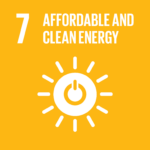At the G20 Summit in Rio de Janeiro, Indonesia announced an ambitious plan to phase out coal-fired power plants within the next 15 years as part of a broader strategy to transition to renewable energy and achieve net zero carbon emissions by 2050.
Indonesia’s commitment to transitioning from coal-fired power plants to renewable energy reflects a broader effort to balance development with sustainability. By phasing out coal, ramping up biodiesel production, and leveraging its vast renewable energy resources, the nation aims to be a leader in climate action.
RELEVANT SUSTAINABLE GOALS




Transitioning to Renewable Energy
Indonesia’s roadmap involves replacing coal and other fossil fuels with renewable energy sources, targeting an expansion of renewable energy capacity to 75 gigawatts by 2039. Officials pointed to the nation’s vast renewable energy potential, including solar power, geothermal energy, and biodiesel, as key components of the strategy.
“We are blessed with substantial natural resources,” Prabowo said. “Fifty percent of our diesel needs are already met by biodiesel produced from palm oil. Along the equator, we have an abundance of sunlight to fuel solar-based energy, alongside other renewable sources.”
He also emphasized Indonesia’s geothermal reserves as a key component of the transition, adding that the country is actively developing technologies to produce gasoline from palm oil. “We are optimistic about our energy future,” he said.
A Call for Global Collaboration on Carbon Credits
Indonesia, home to one of the world’s largest tropical forests, emphasized its critical role in global climate regulation. Officials highlighted the need for developed nations to fulfill their promises of carbon credit payments, pointing out Indonesia’s vast carbon storage capacity and its contributions as the “lungs of the Earth.”
“Indonesia is open to optimizing its carbon credit potential, estimated at 557 million tons,” a government spokesperson said. The country also underscored its significant contributions to cooling the planet and called for stronger international collaboration to support its sustainability efforts.
Prabowo’s Commitment to a Green Transition
President Prabowo Subianto, who delivered the announcement at the G20 Summit, reinforced Indonesia’s commitment to climate action. He expressed optimism about the nation’s ability to lead the way in renewable energy, noting Indonesia’s rich natural resources and its history of contributing to global climate efforts.
“Our forests, energy capacity, and commitment to sustainability make Indonesia a vital partner in the global fight against climate change,” Prabowo concluded, calling for continued collaboration and investment in green technologies.
Indonesia faces severe consequences from climate change, including rising sea levels that threaten to inundate productive land on the north coast of Java. These impacts risk worsening poverty and hunger for millions of Indonesians.
“For Indonesia, there is no alternative,” Prabowo declared. “We are fully committed to measures that reduce global temperatures, protect our environment, and address the profound challenges climate change presents.”
You may also be interested in :
Indonesia Secures $500 Million Loan From ADB To Accelerate Energy Transition




